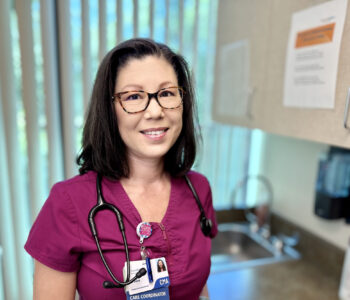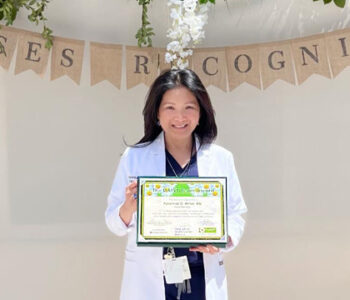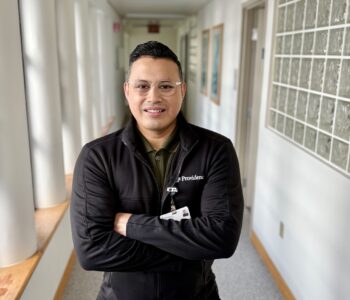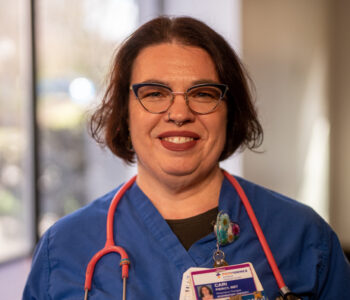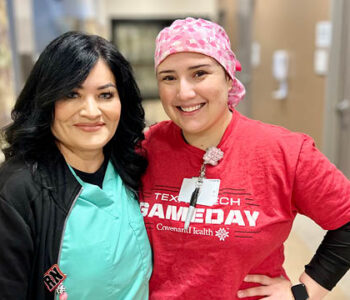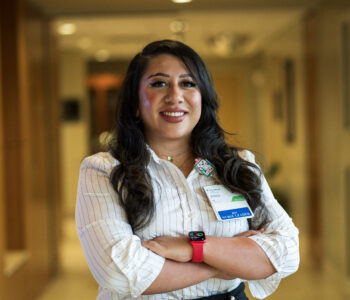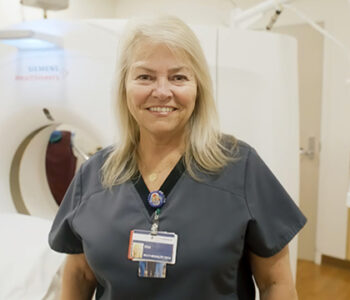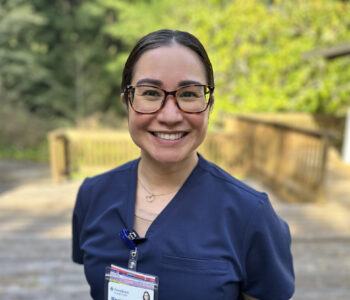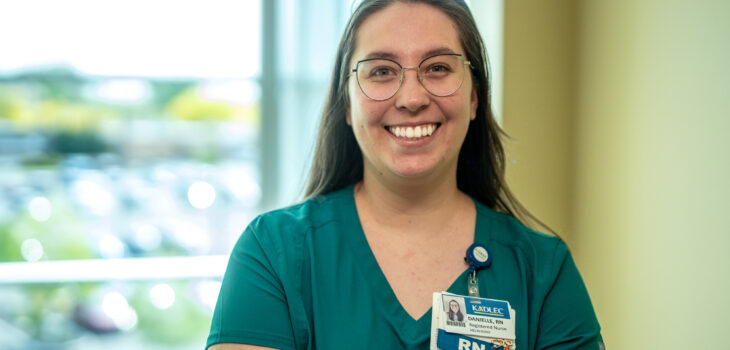 Caregiver Stories
Caregiver Stories
How collaborative teams at Kadlec ensure quality, equitable care for every patient
At Kadlec, part of the Providence family of organizations, community is the heart of everything we do. We are committed to ensuring that everyone, regardless of their background or situation, has access to quality healthcare. Clinic RN Danielle recently shared how her team at Kadlec’s neurology clinic prioritizes equal access to care with the help of medical interpreters for its large non-English-speaking patient population.
Tri-Cities boasts a significant Latino population
With its proximity to the railroad and fertile farmland, Pasco, Washington, was incorporated in the late 1890s. Kennewick and Richland followed suit, and these three towns located at the confluence of the Yakima, Snake and Columbia Rivers in Eastern Washington became known as the Tri-Cities. The booming agricultural business brought many Latino families to the area, who laid down roots and helped build Tri-Cities into the thriving area it is today. Pasco in particular retains its Latino population; according to the Washington State Office of Financial Management, as of April 1, 2021 (latest data available), Latino or Hispanic of any race made up 56.26% of the population.
Ensuring clear communication for Latino and all non-English-speaking patients
It’s critical for patients who don’t speak English to have a professional medical interpreter present at doctor appointments to ensure accurate communication and informed decision-making. This is because medical interpreters are specifically trained on complex medical terminology so they can give error-free information about a patient’s health regardless of the patient’s language.
Danielle says, “I really appreciate our clinic advocating for people who don’t speak English so that they can receive the best care with the help of someone who understands the medical terminology that’s being used.” She says her clinic never overlooks the requirement to provide professional medical interpretation services. “Using family members for interpreting is a big issue in healthcare. In other places I’ve worked, if technology is failing or time is of the essence, caregivers have opted to use a family member to interpret. But I’ve never seen that in our clinic.”
Not only do professional interpreters provide error-free information, but studies also show that they improve and raise the quality of clinical care vs. ad hoc interpreters for Limited English Proficient (LEP) patients.
Enlisting technology when in-person interpreters aren’t available
According to Danielle, when a non-English-speaking person books an appointment, the clinic front desk gets to work scheduling an interpreter to be there at the same time. In an ideal world, interpreting is always done in-person. But if that’s not possible, the clinic has supporting technology in the form of a mobile cart that enables a secure video chat between patients and interpreters. “You have the interpreter on a screen, and they can see the patient and the patient can see them, and they can speak to one another directly,” says Danielle. “In-person is best, but that’s a good backup solution.”
Danielle adds that caregivers help if they’re ever in a real bind. “We have quite a few staff members who are fluent in Spanish and have a license to be a medical interpreter, so sometimes they’re able to step in if there’s an interpreting need for a Spanish speaker.”
Collaborative teams fuel a community-driven environment
Danielle says that the way her team collaborates with each other—and with patients—also contributes to the community-first mindset she loves and ensures every patient gets quality, equitable care. “There’s no hierarchy, we’re just all collaborating and helping each other for our patients. I work one-on-one with the doctors, and I feel like I really get to learn from them. And the MA team comes in with a positive mindset and is ready to take on whatever happens. I’ve seen a lot of coworkers bend over backwards for people, just to try to provide them the best care that they can.”
This collaborative approach extends to the patients themselves. Danielle explains that the aging population they serve actively works with the medical team to develop and follow care plans to optimize their health. Licensed medical interpreters for non-English speakers further enhance this collaboration, ensuring that every patient can fully participate in decisions about their care.
Work with us
If you’re looking for a nursing role where you can make a meaningful impact, consider joining us at Kadlec. View all open positions today.

